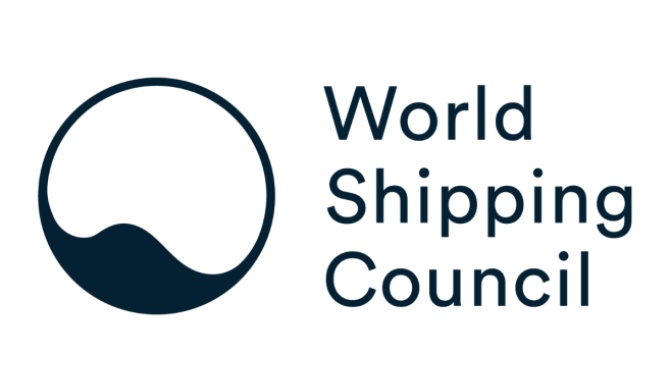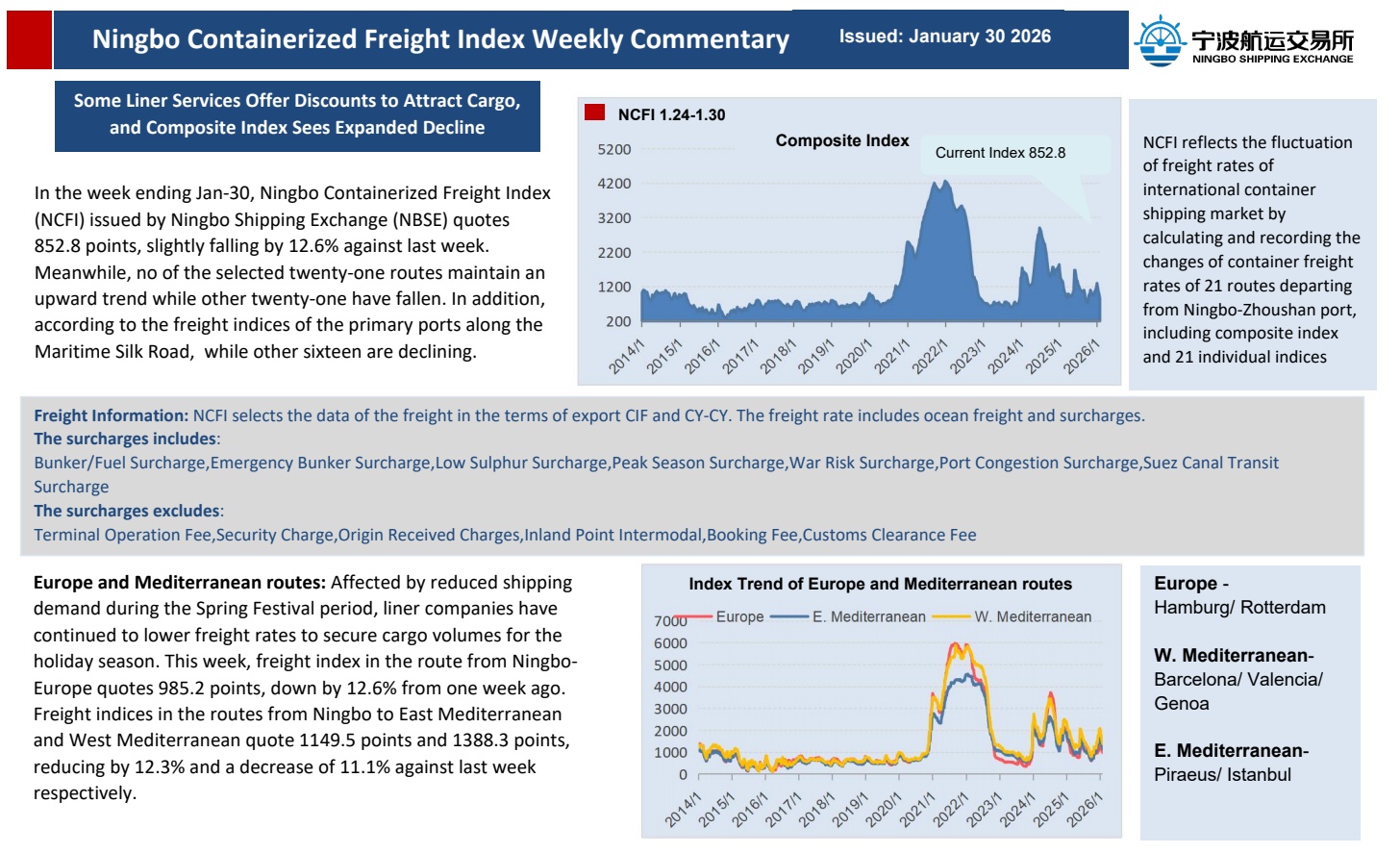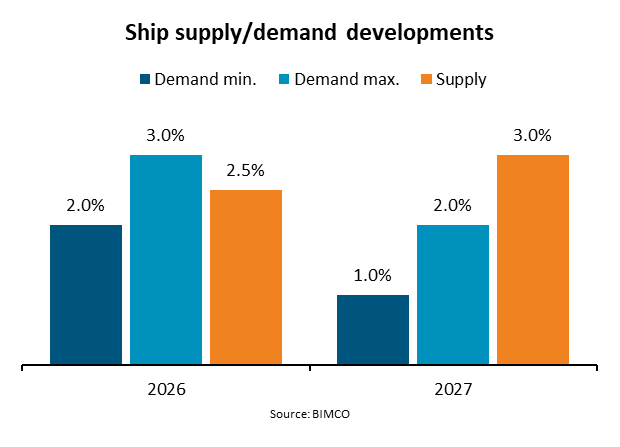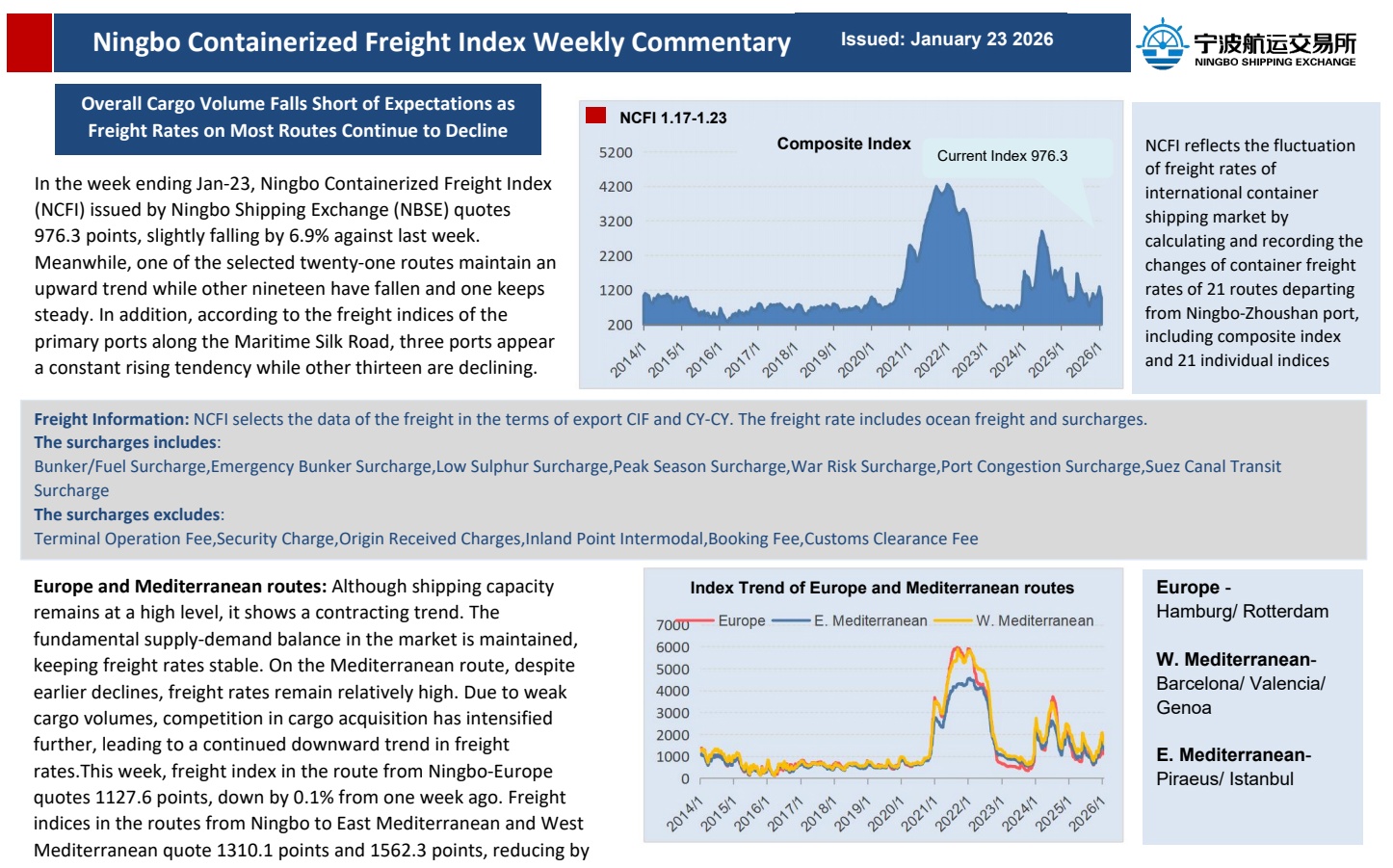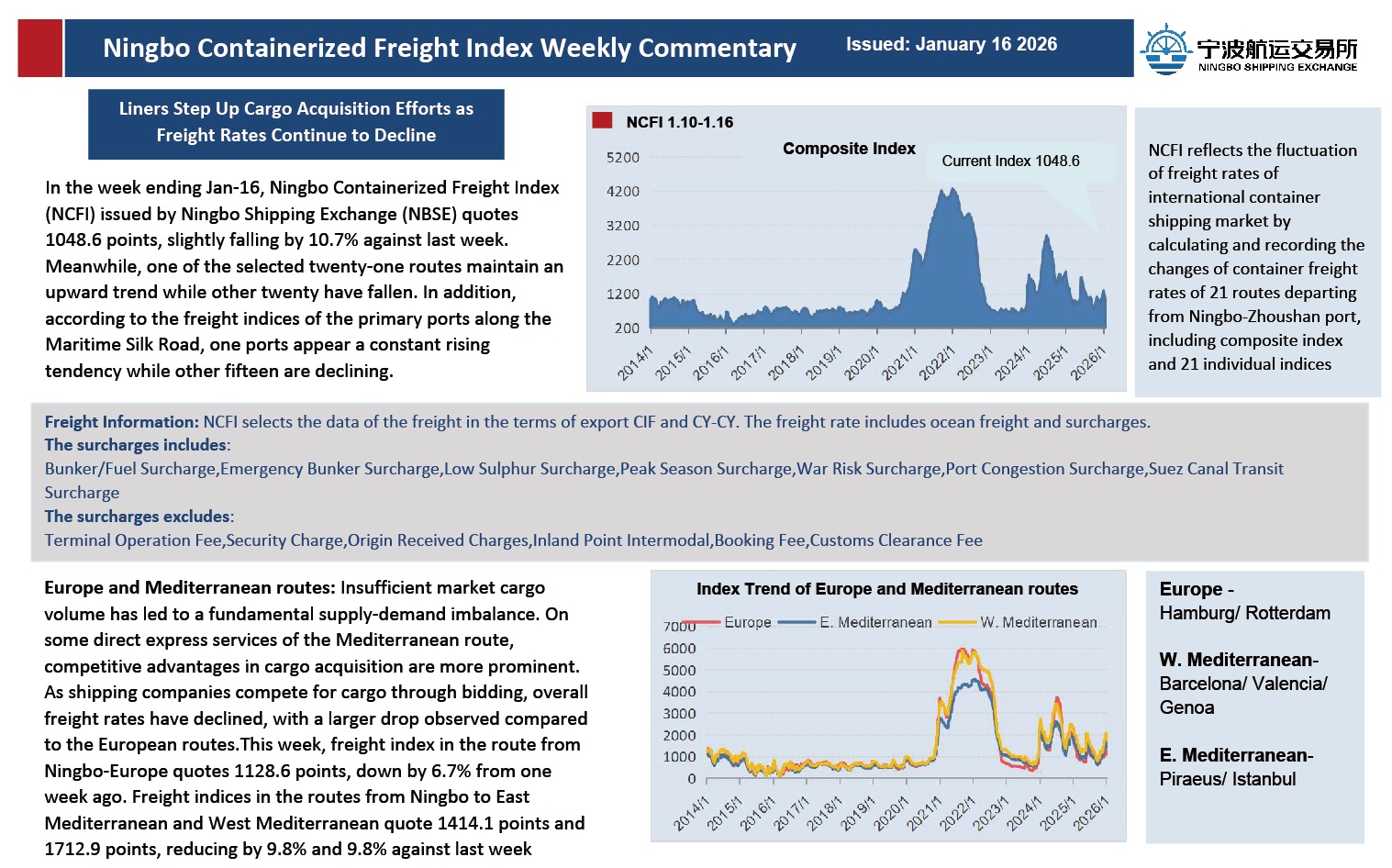Maritime trades have been powered by residual fuels that emit high levels of air pollutants and greenhouse gases for decades, but a growing number of regulators are pushing vessel operators to use greener energy sources.
Having lowered the global sulfur cap for bunker fuels earlier this decade, the International Maritime Organization has set decarbonization targets for cross-border shipping in the coming decades on the way to net-zero emissions close to 2050 and plans to introduce GHG rules for marine fuels in phases.
With civil society pressuring governments and businesses to act on climate change, the UN agency has emerged as the main driving force for low-carbon shipping with insufficient voluntary efforts from the private sector, said Adrian Tolson, owner of consultancy 2050 Marine Energy.
“Despite some corporations being outliers, it’s not realistic to see shipping decarbonize itself out of the goodness of its heart and its concern for environment,” Tolson told S&P Global Commodity Insights. “A level playing field for all owners and operators is essential, and this only comes with clear consistent and preferably global regulation.”
Other industry participants said various regional and national governments are also developing maritime emission regulations, with the EU taking the lead in promoting GHG cuts from vessel operations.
Brussels is scheduled to extend the Emissions Trading System to cover shipping from 2024 and usher in GHG intensity requirements for marine energy from 2025, and both sets of rules will cover voyages to, from and between EU ports.
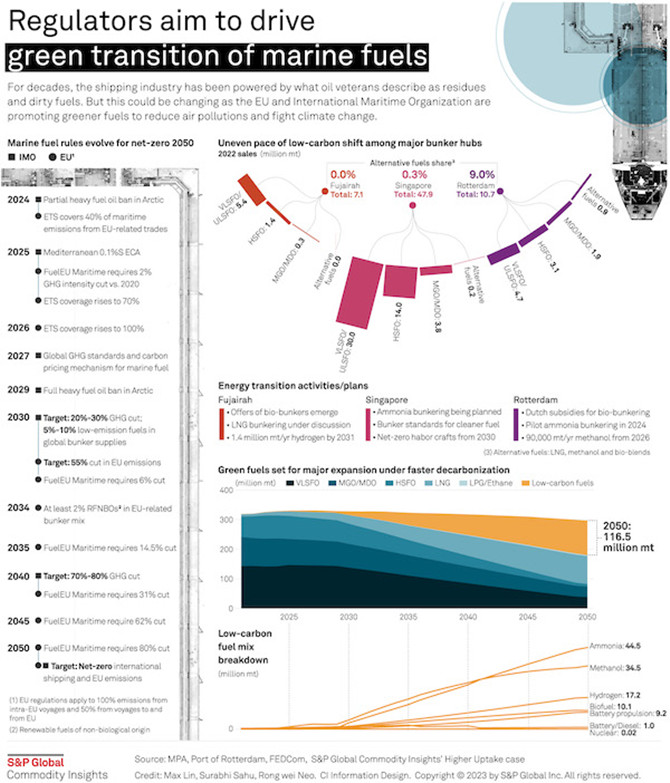

“Whilst there is variation globally, overall, the political and societal pressure for the world to decarbonize is high and we can see this in the regulatory development activity in IMO and the EU,” Lloyd’s Register’s head of regulatory affairs, Andrew Sillitoe, said.
Changing focus
Shipping regulations have the ability to shake up the bunker market dynamics, as shown by the IMO rules requiring vessels to burn fuels with 0.5%S limits instead of 3.5%S from 2020 except for those with scrubbers.
Very low sulfur fuel oil didn’t exist commercially before the turn of the decade. But the 0.5%S fuel’s consumption reached 143.1 million mt globally in 2022, or nearly 45% of total bunker demand, according to S&P Global data.
Aside from some emission control areas with 0.1%S requirements, major regulatory pieces will focus on GHG reduction through the 2020s and beyond, industry participants said.
“The pressure to reduce sulfur oxide emissions from shipping further has reduced [following IMO 2020],” said Sillitoe, adding that SOx is a local pollutant affecting coastal areas whereas climate change is a global issue.
The shifting focus comes as average global temperature continues to rise, with the US National Oceanic and Atmospheric Administration describing July as “likely Earth’s warmest month” on record.
“There is a very clear scientific rationale that requires deep GHG reduction,” said Tristan Smith, co-founder of consultancy UMAS. “Climate impacts are already affecting every country, some catastrophically, and this creates strong political pressure for governments to take action.”
In their Higher Uptake case assuming more decarbonization efforts by governments and businesses, S&P Global analysts expect low-carbon bunker demand to increase from 845,000 mt last year to 12.5 million in 2030 before a further jump to 116.5 million mt in 2050. This would suggest their share in total marine energy would rise from 0.3% in 2022 to 3.8% in 2030 and 39.3% in 2050.
Major hubs
Some major bunker hubs have sought to position themselves for the evolving bunker mix, developing refueling standards and providing financial incentives for new types of marine fuels during the low-carbon transition.
Rotterdam, Europe’s largest and the world’s No. 2 hub, already saw 9% of its bunker sales last year from alternative fuels like LNG, bio-blends and methanol — which have lower carbon intensity than oil-based fuels but are not necessarily low-carbon fuels.
The world’s top refueling port, Singapore, reported alternative fuels made up 0.3% of its sales in 2022. But bio-blended sales hit a monthly record high and LNG sales surged in July as the first methanol transaction occurred, according to data from the Maritime and Port Authority of Singapore.
“Some ports are clearly more engaged than others,” Tolson said. “Singapore was perhaps behind Rotterdam for some time, but with the power of the Singapore government they are clearly catching up.”
Despite stating its ambition for a low-carbon transition, Fujairah — the world’s No. 3 — didn’t record any alternative bunker sale last year. “Perhaps they are waiting for commercial interests to do the heavy lifting,” Tolson said.
Haris Zografakis, partner of law firm Stephenson Harwood, suggested future bunker ports are likely to require new, specialist bunkering facilities.
“The scale of the investment needed will be considerable, and it remains to be seen whether the public and private investments needed will materialize,” Zografakis said.
Bunker ports’ ability to access future low-carbon fuels have also been in focus, as the trading routes of “green” methanol and ammonia are expected to differ from oil-based fuels with the Global South potentially emerging as production centers.
“Whether Singapore, Rotterdam and Fujairah remain relevant as bunkering points will [be determined by] how proactively they engage in the energy transition, as well as how the supply chains for new energy commodities develop over time,” Smith said.
Source: Platts
Source: Platts
The opinions expressed herein are the author's and not necessarily those of The Xinde Marine News.
Please Contact Us at:


